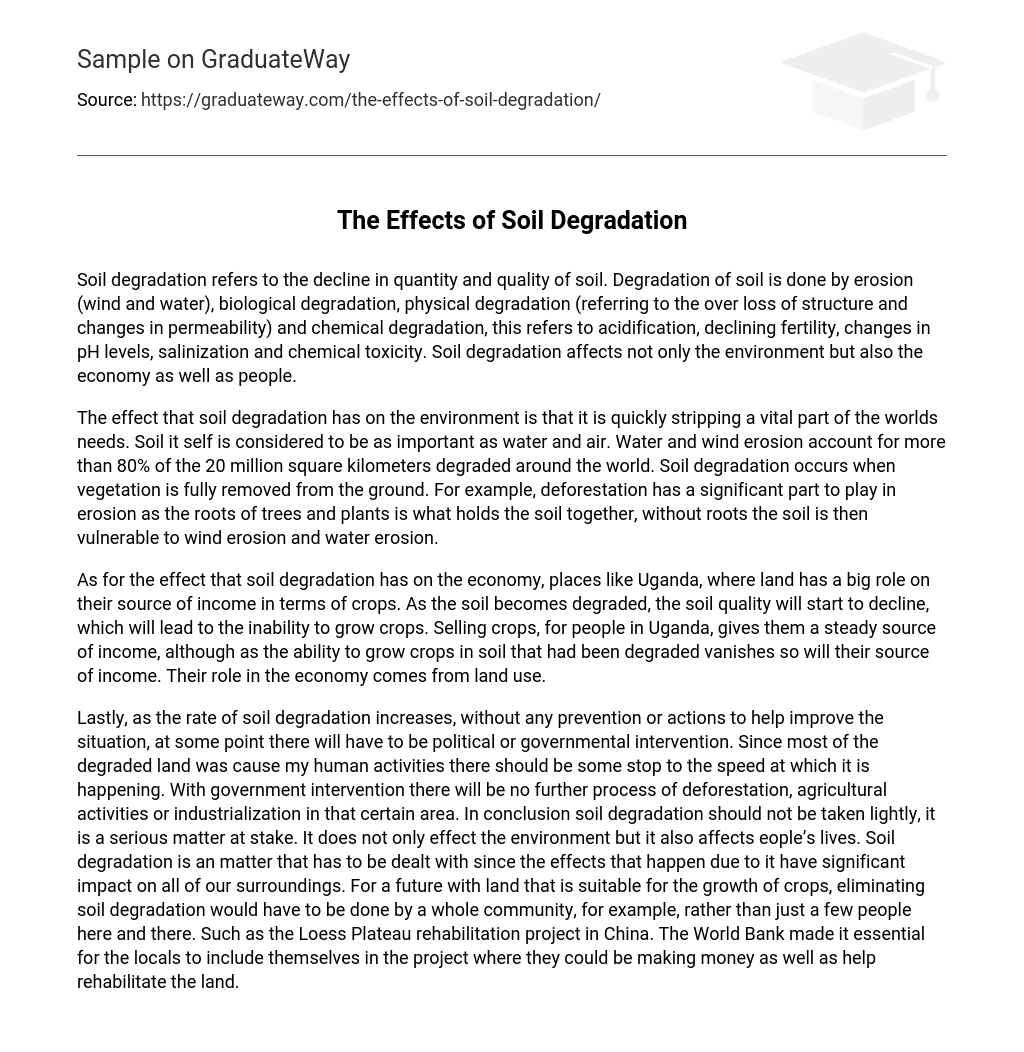Soil degradation encompasses erosion (wind and water), biological, physical (structural loss and permeability changes), and chemical degradation (acidification, fertility decline, pH level changes, salinization, and chemical toxicity). It signifies the decline in soil quantity and quality. This deterioration affects not just the environment but also the economy and society.
Soil degradation is depleting an important resource needed for the world’s survival. Soil is just as crucial as water and air. The main causes of soil degradation are erosion caused by water and wind, which have impacted over 80% of the 20 million square kilometers of degraded land globally. When vegetation is entirely removed from the soil, degradation takes place. Deforestation plays a major role in erosion because trees and plant roots assist in binding the soil. Without roots, the soil becomes vulnerable to erosion by wind and water.
The financial impact of soil degradation is particularly pronounced in countries like Uganda, where agricultural income relies heavily on the condition of the land. When soil degrades, its quality declines, making it difficult to cultivate crops. In Uganda, selling these crops is essential for generating revenue. Unfortunately, as the ability to farm degraded soil decreases, so does their source of income. Land use plays a pivotal role in their economy.
Recognizing the importance of soil degradation to both the environment and people’s lives is crucial. Without preventative measures or efforts to improve the situation, political or governmental intervention may become necessary. It is essential to address human activities such as deforestation, agriculture, and industrialization in affected areas as the primary cause of soil degradation.
To ensure a future with cultivable land that is free from degradation, collective efforts from the entire community are necessary rather than relying on a few individuals. The World Bank cites the Loess Plateau rehabilitation project in China as an example where local communities participated in generating income and rehabilitating the land.





